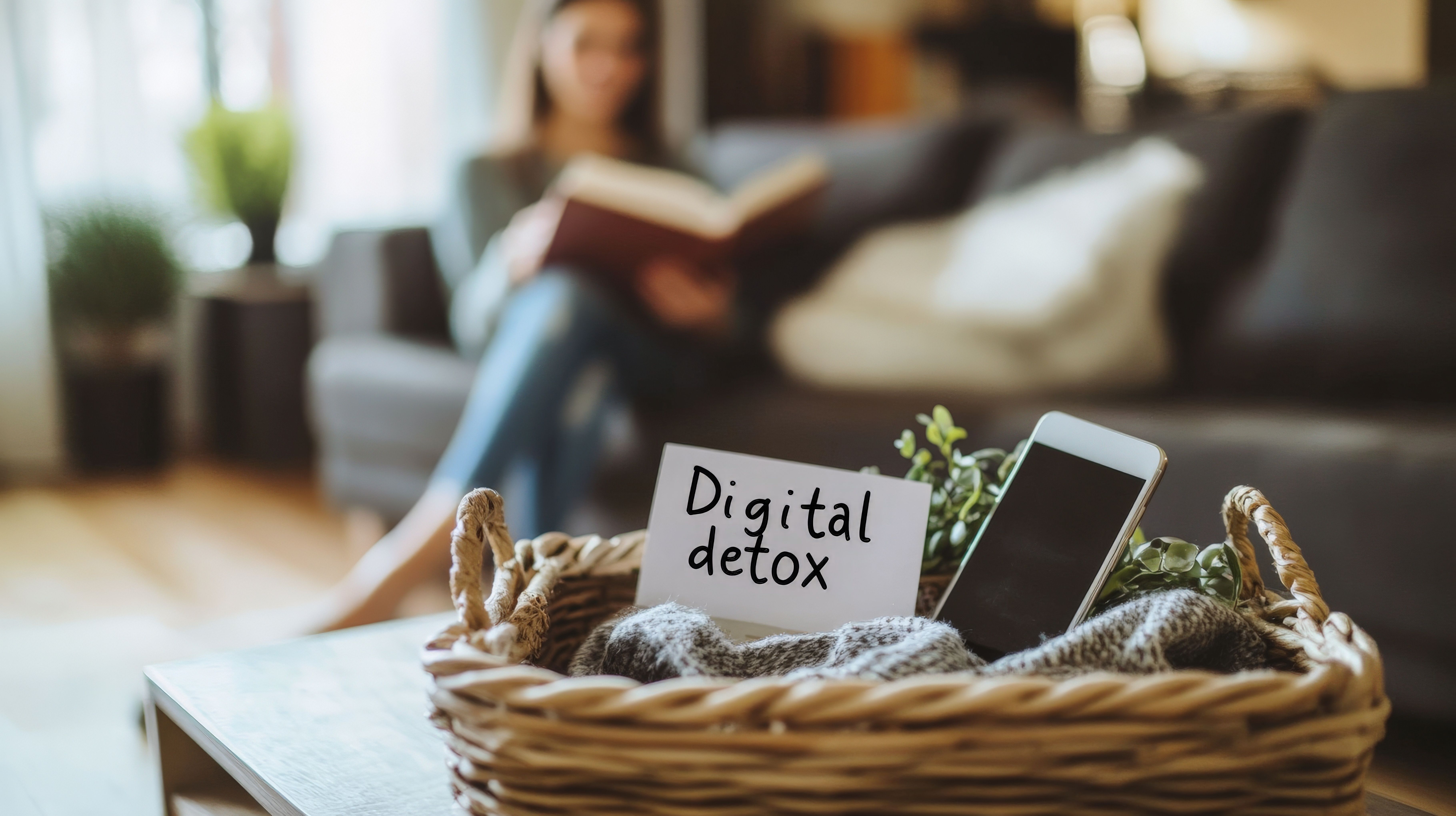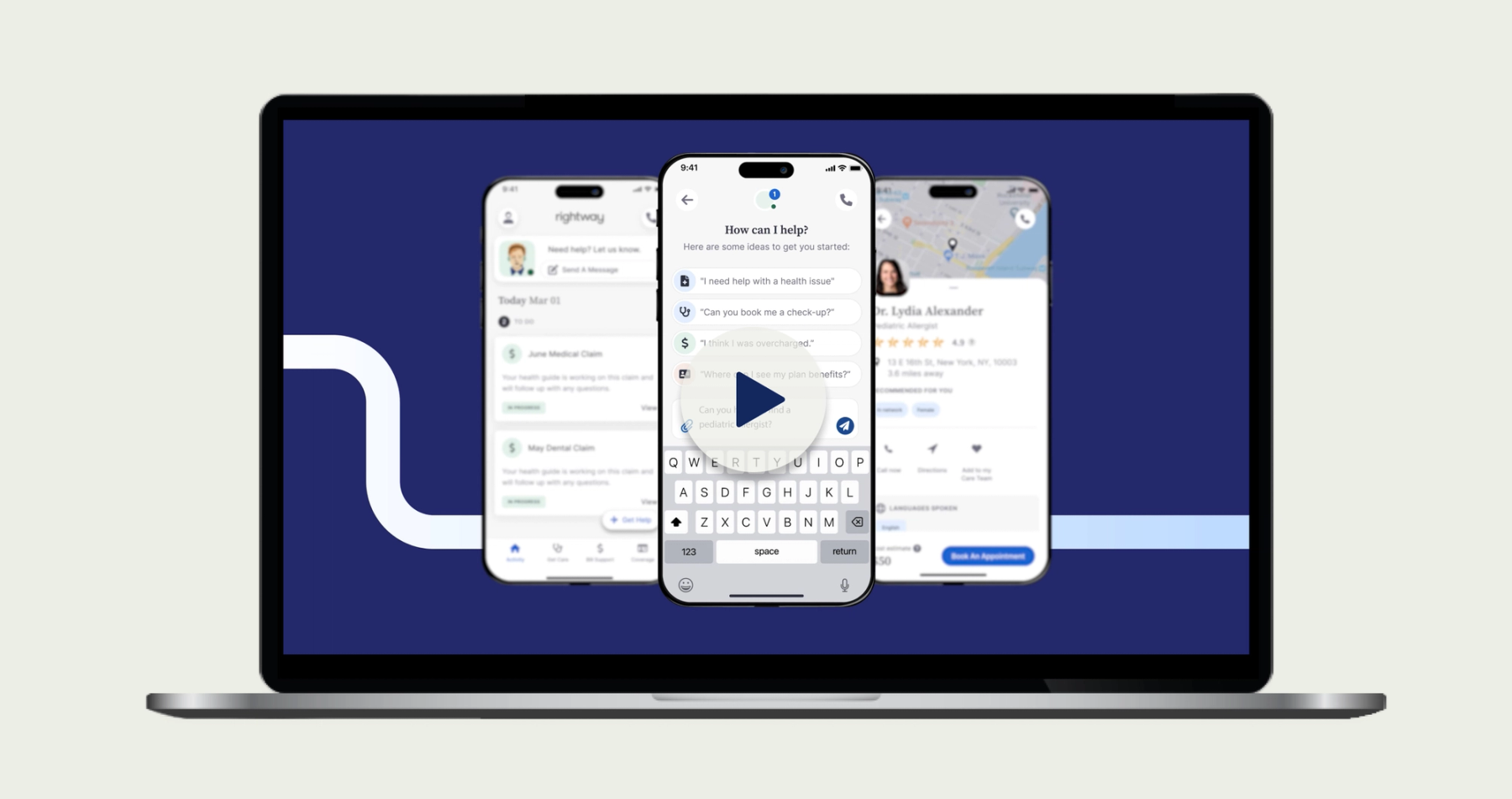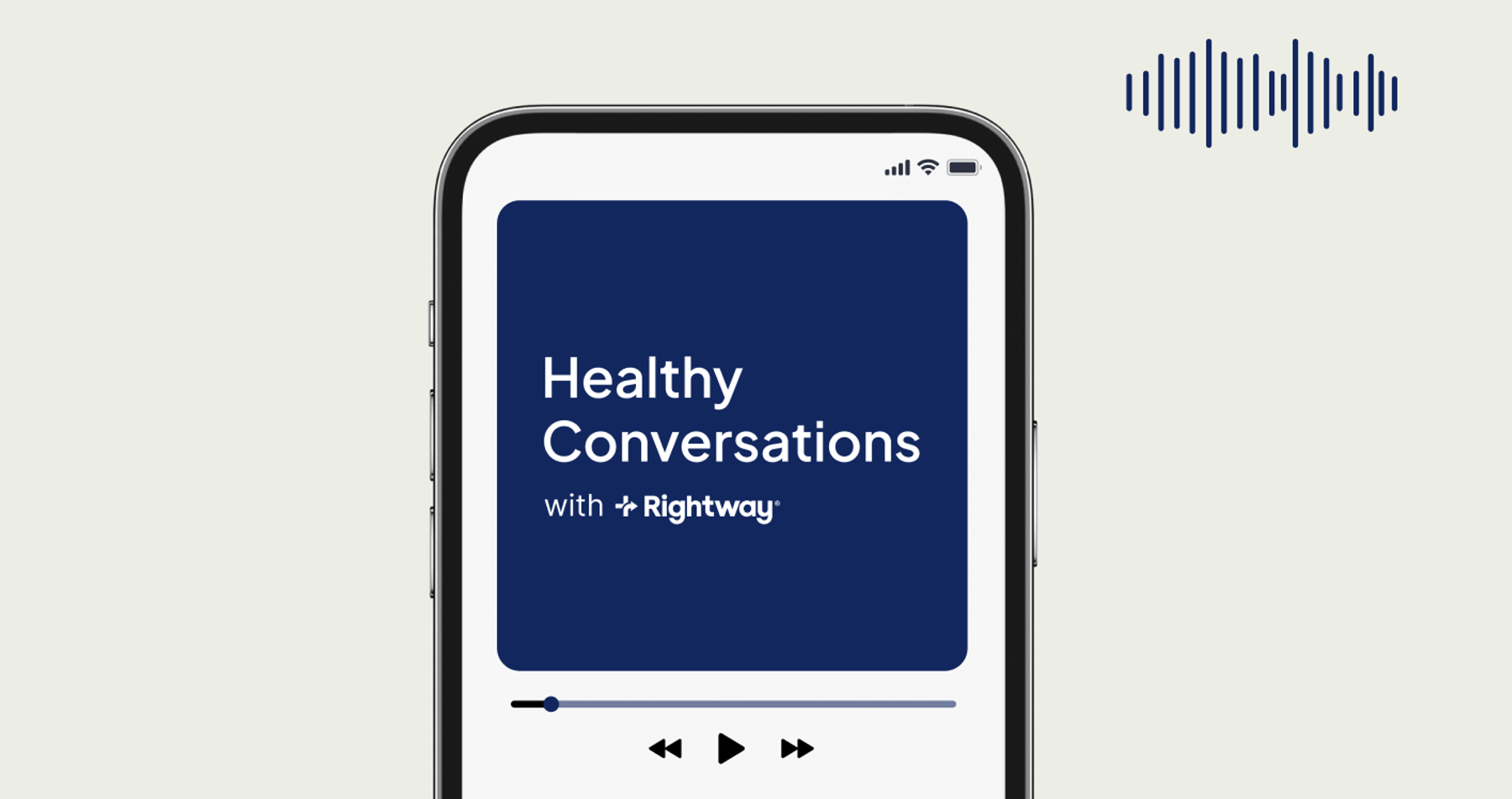Screen time: Setting healthy boundaries in an always-connected world.

It’s easy to forget that disconnecting from technology is an option, and something we should do often for our well-being. This Mental Health Month, why not take a break from technology, screens, and information overload?
Digital wellness is physical wellness
Many of us are glued to a screen for most of the day – our smartphones, work computers or other devices. And that’s before we sit down in front of the TV to relax (maybe with our phone by our side for commercial breaks). Research shows that(La Amistad, 2023) all of that screen time takes a toll on your mind and body.
Give your eyes a break
Your eyes bear the brunt of your time spent using screens. All of your screen time can lead to Computer Vision Syndrome, which includes eye strain, headaches, blurred vision and dry eyes. Sometimes ergonomic and environmental changes, like adjusting your seating position or the light in the room, can help. Additionally, everyone using a screen should practice the 20-20-20 rule(American Optometric Association, 2025). When working on a screen, take a 20-second break to look at something 20 feet away every 20 minutes.
Get outside
How many times have you found yourself getting sucked into a digital rabbit hole and spending way more time than you wanted to at the computer, never once looking up and completely losing track of time? There’s a reason kids have outdoor recess at school. Taking just twenty minutes a day to spend outside disconnecting from tech and reconnecting with nature can significantly lower levels of the stress hormone cortisol. Take a walk or sit on a park bench –no vigorous exercise required(Harvard Health, 2019). Not only will it give your eyes and body a break from screen time, but it will simultaneously reinvigorate your mental and emotional wellbeing.
How to shift your focus
Digital media has become so deeply woven into the fabric of our daily lives that maintaining healthy boundaries is far more challenging than simply deciding to "control our screens." The constant stream of notifications, the addictive nature of social media algorithms, and the way our work and social lives increasingly depend on digital connectivity make it difficult to step away. Many people find themselves habitually checking their phones even when they've consciously decided not to, or scrolling through content well past their intended bedtime. The "fear of missing out" (FOMO) can create anxiety about disconnecting, while the dopamine hits from likes, comments, and new content create powerful psychological rewards that keep us coming back for more. Here’s how to combat the addictive nature of technology.
Turn off notifications
Your smartphone’s main goal is to get you to pay attention to it. Dodge the endless ding and set a clear boundary: turn off notifications. You don’t have to turn every app off, but try it for your email and social media, if you can bear it. You may find that it improves your emotional wellbeing and reduces your stress levels. Make using your device intentional(Forbes, 2020), rather than reacting to a barrage of messages and updates, most of them unimportant.
Set limits
Rules around screen time – it's not just for kids anymore! Make a conscious effort to reduce your time interacting with screens. There are many apps that can help, from monitoring usage to locking your device for a certain number of hours. Or, if you have iron willpower, you can simply put your devices away.
However you get there, designated screen-free time is vital to your physical and mental health. It allows more space for human connection, exercise, idling, and all those things we did before we were online 24/7. You may even skip the mindless snacking and get more sleep –both great health boosters(Mayo Clinic, 2024).
Power down before bed
Power down your devices and screens (or at least put them away) 1-2 hours before bedtime. Take it a step further and make your bedroom an entirely phone-free zone. You may find that you’ll fall asleep quicker and easier – not only because you’re not consuming and engaging with content but because you’re not staring at blue light, which can reduce melatonin production and keep you from dozing off(Cleveland Clinic, 2022).
If you need more help managing your emotional wellbeing, stress and mental health, a Rightway health guide is available to you online, via the mobile app, or by phone.
Remember, you can call or chat with us - your health guides - directly through the Rightway app any day and at any time. We will answer your healthcare questions, find the best in-network provider in your area, and ensure you get the best care possible at the most affordable price.
Download the Rightway app and connect with a health guide today if you have any questions or need support.
Sources:
- La Amistad. "Screen time effects on mental health." Accessed May 7, 2025. https://lamistad.com/blog/screen-time-effects-on-mental-health/
- American Optometric Association. "Computer vision syndrome." Accessed May 7, 2025. https://www.aoa.org/healthy-eyes/eye-and-vision-conditions/computer-vision-syndrome?sso=y
- Harvard Health. "A 20-minute nature break relieves stress." Accessed May 7, 2025. https://www.health.harvard.edu/mind-and-mood/a-20-minute-nature-break-relieves-stress
- Forbes. "This is why you need to turn off social media notifications." Accessed May 7, 2025. https://www.forbes.com/sites/amyblaschka/2020/09/21/this-is-why-you-need-to-turn-off-social-media-notifications/
- Mayo Clinic. "5 ways slimming screen time is good for your health." Accessed May 7, 2025. https://www.mayoclinichealthsystem.org/hometown-health/featured-topic/5-ways-slimming-screen-time-is-good-for-your-health
- Cleveland Clinic. "Why you should ditch your phone before bed." Accessed May 7, 2025. https://health.clevelandclinic.org/put-the-phone-away-3-reasons-why-looking-at-it-before-bed-is-a-bad-habit







